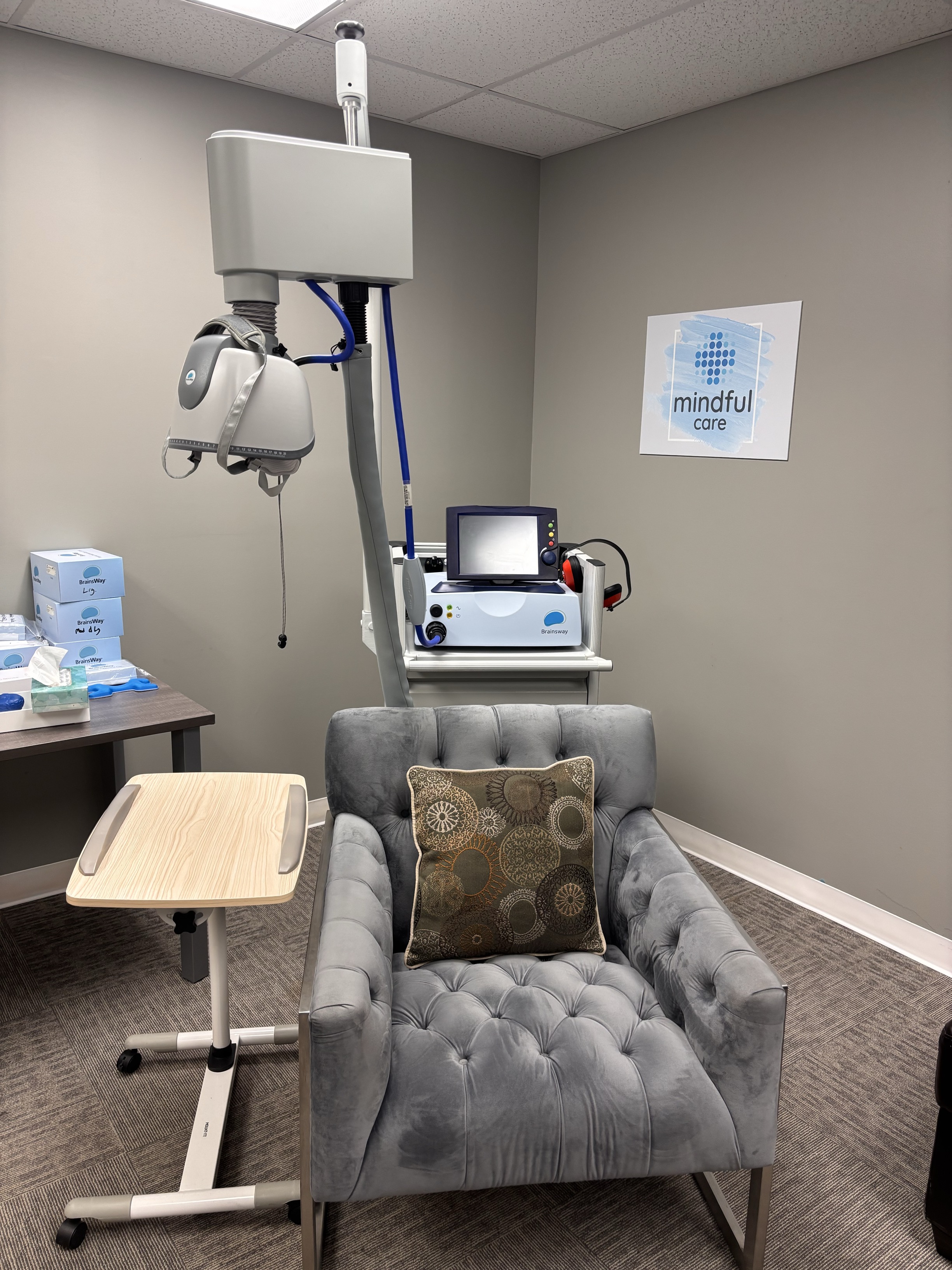Transcranial Magnetic Stimulation
TMS Treatment at Mindful Care
A non-invasive, medication-free, FDA-cleared treatment for people struggling with treatment-resistant depression.
✓ Covered by many major insurance plans
✓ Only available at West Hempstead location
✓ Comfortable, 20-30 minute sessions
✓ FDA-cleared for ages 18-86

How TMS Can Help You
How TMS Works
Meet Your TMS Provider
Dr. Michael DeStefano, M.D., is the Medical Director at Mindful Care, ensuring consistent, high-quality, evidence-based mental health care across the organization. Holding Board Certification in Psychiatry & Neurology, and expertise in Interventional Psychiatry, he partners closely with psychiatrists, therapists, and multidisciplinary teams to strengthen clinical standards, care coordination, and patient outcomes.
What Our Patients Are Saying About TMS
Address
510 Hempstead Tpke, Suite 203
West Hempstead, NY 11552
Office Hours
Monday - Friday: 8am - 6pm
Phone
Fax
FAQ's
1. What is TMS and how does it work?
2. Who is a good candidate for TMS?
• Depression with anxiety symptoms
• Obsessive-Compulsive Disorder (OCD)
• Tobacco use disorder
Patients should have tried at least 2–4 antidepressants without adequate relief and be able to attend sessions 3 times per week for 12 weeks.
3. What is a typical TMS session like?
4. Is TMS safe?
5. Is TMS covered by insurance?
6. Where is TMS offered?
Mindful Care – West Hempstead, NY
7. What are the side effects of TMS?
• Mild scalp discomfort or headache at the treatment site (usually temporary)
• Jaw or facial twitching during treatment
• Lightheadedness during or after sessions (rare)
Serious side effects, such as seizures, are extremely rare and typically occur only in those with pre-existing neurological risk factors (e.g., epilepsy). Patients are carefully screened to minimize these risks.


